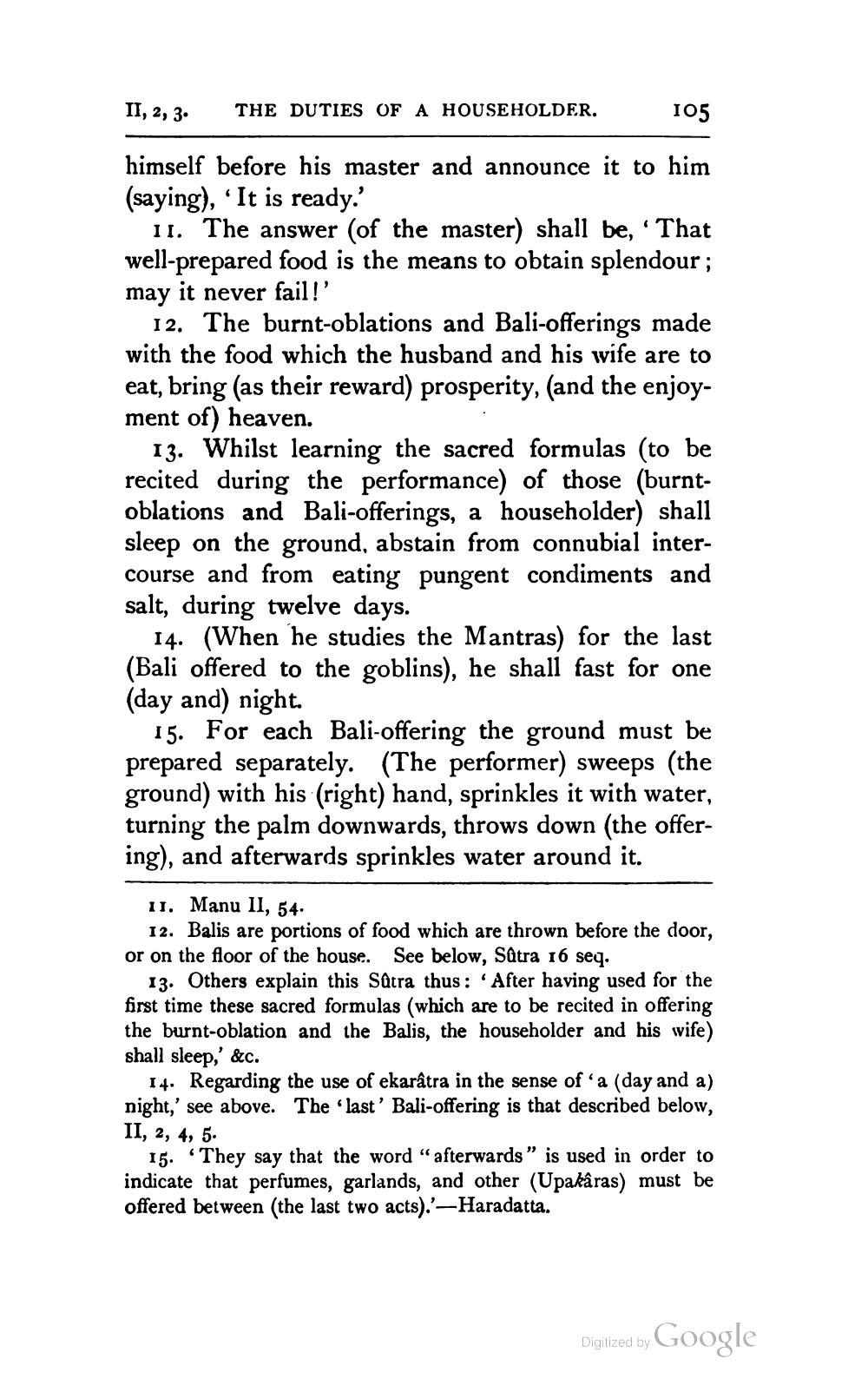________________
II, 2, 3.
THE DUTIES OF A HOUSEHOLDER.
105
himself before his master and announce it to him (saying), 'It is ready.'
11. The answer (of the master) shall be, 'That well-prepared food is the means to obtain splendour; may it never fail!'
12. The burnt-oblations and Bali-offerings made with the food which the husband and his wife are to eat, bring (as their reward) prosperity, (and the enjoyment of heaven.
13. Whilst learning the sacred formulas (to be recited during the performance) of those (burntoblations and Bali-offerings, a householder) shall sleep on the ground, abstain from connubial intercourse and from eating pungent condiments and salt, during twelve days.
14. (When he studies the Mantras) for the last (Bali offered to the goblins), he shall fast for one (day and) night.
15. For each Bali-offering the ground must be prepared separately. (The performer) sweeps (the ground) with his (right) hand, sprinkles it with water, turning the palm downwards, throws down (the offering), and afterwards sprinkles water around it.
u. Manu II, 54.
12. Balis are portions of food which are thrown before the door, or on the floor of the house. See below, Sätra 16 seq.
13. Others explain this Sätra thus : After having used for the first time these sacred formulas (which are to be recited in offering the burnt-oblation and the Balis, the householder and his wife) shall sleep,' &c.
14. Regarding the use of ekarâtra in the sense of a day and a) night,' see above. The 'last' Bali-offering is that described below, II, 2, 4, 5.
15. They say that the word “afterwards" is used in order to indicate that perfumes, garlands, and other (Upakâras) must be offered between the last two acts).'-Haradatta.
Digitized by Google




